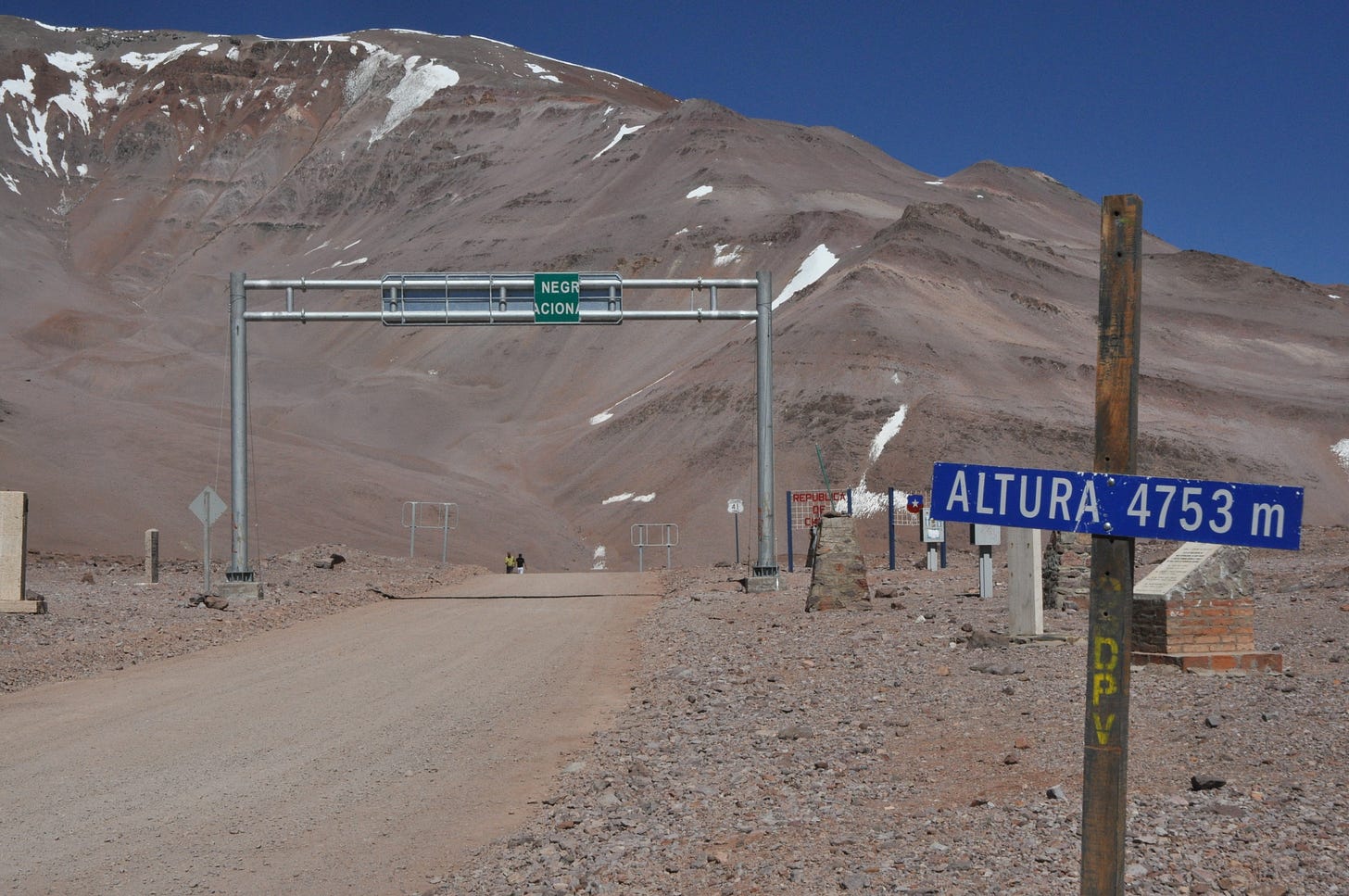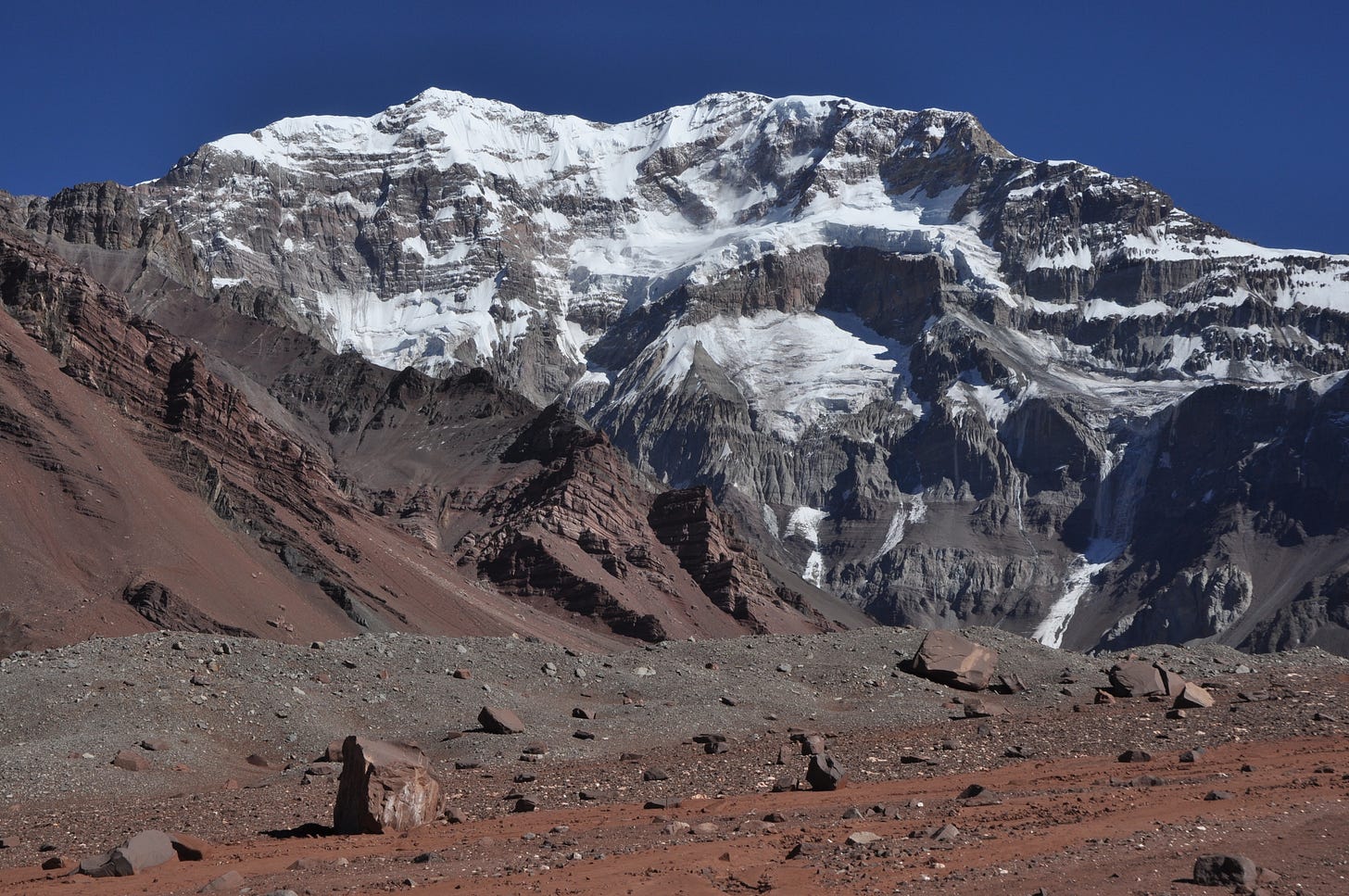Lithium mining -- there goes the neighborhood
Argentina is looking to accelerate its production of lithium for rechargeable batteries that climate change demands for vehicles. Let's hope its parks (photos) avoid the fallout.
Argentina, the second largest South American country, has a landscape much like the western United States.
Also like the U.S., Argentina has vast mineral resources that are vital to its economy but also potentially damaging to the environment when extracted.
Lithium is one of those resources the world needs for rechargeable batteries and Argentina is looking to supply it.
I traveled in Argentina twice, both times by rental car. The first time was to tour the southern Los Glaciares National Park, which is world famous because of its jagged tooth Patagonian mountains.
The second time was to visit an unknown string of national and provincial parks, at least unknown outside the country, on a road trip that crossed the Andes twice, between Santiago in Chile and Mendoza in west/central Argentina.
This seems well south of Argentina’s lithium zone, though the landscape likely holds other minerals.
Depending on the cost of a rental car these days, this is a world-class tour — crossing as it does one of the highest passes in the world (15,595 feet) that anyone can drive across with a cheap, stick-shift South American rental car (the border is currently closed due to Covid protocol).
Google Maps shows the clockwise loop. The northern Andes crossing is Paso Agua Negra; the southern is the Tunel Christo Redentor los Andes.
I don’t know if I passed through Argentina’s lithium landscape, but the countryside looks like it’s rife for mining.

Industrialists and politicians are keeping a dirty little secret when they push the use of rechargeable lithium batteries as a replacement for petroleum-based engines in vehicles. The machines may not add to greenhouse gas pollution when they operate, but mining and disposing of their minerals is a very dirty process.
Here’s what the Institute for Energy Research says:
“Lithium extraction harms the soil and causes air contamination. In Argentina’s Salar de Hombre Muerto, residents believe that lithium operations contaminated streams used by humans and livestock and for crop irrigation. In Chile, the landscape is marred by mountains of discarded salt and canals filled with contaminated water with an unnatural blue hue. According to Guillermo Gonzalez, a lithium battery expert from the University of Chile, “This isn’t a green solution – it’s not a solution at all.’ ”
Here’s a look at some of that Argentinian landscape that may or may not be adjacent to the mine that powers your next car.








